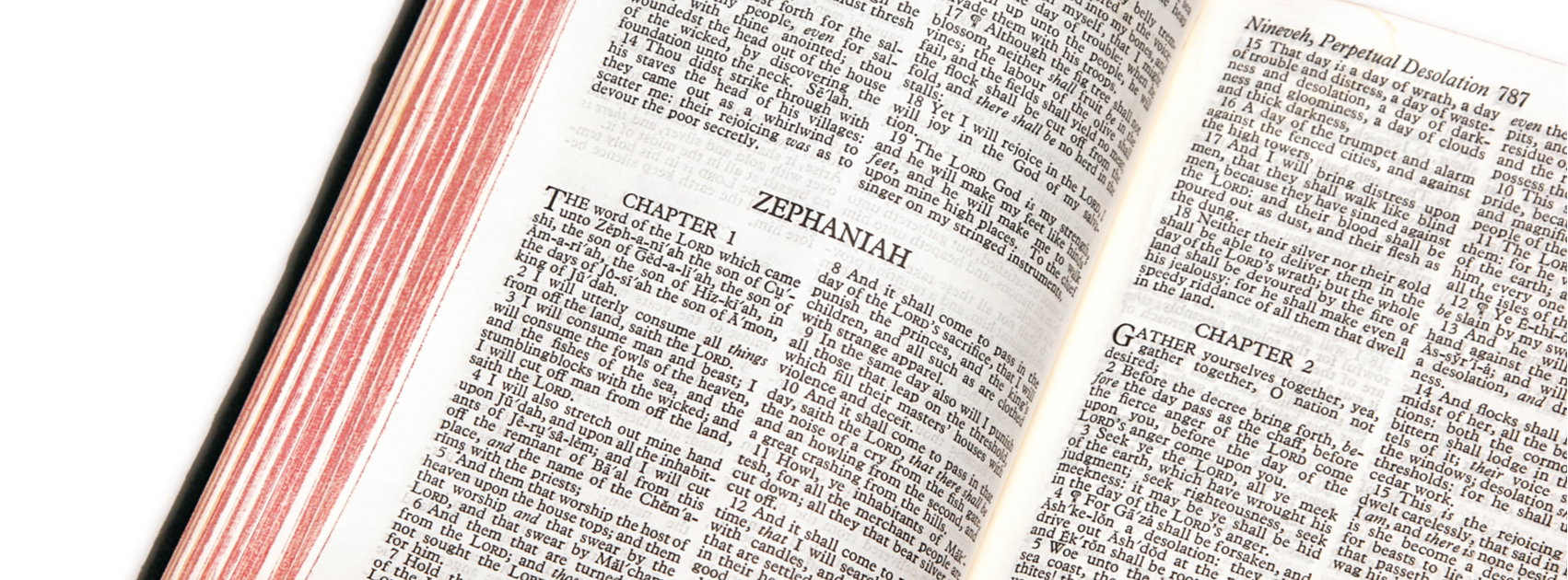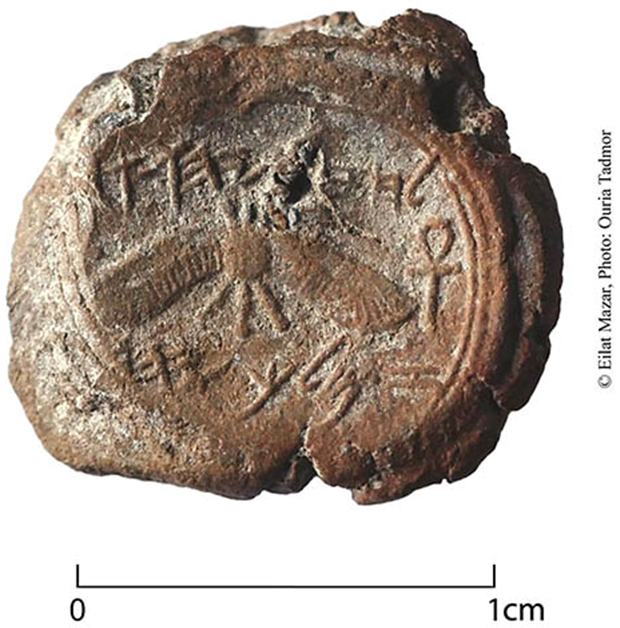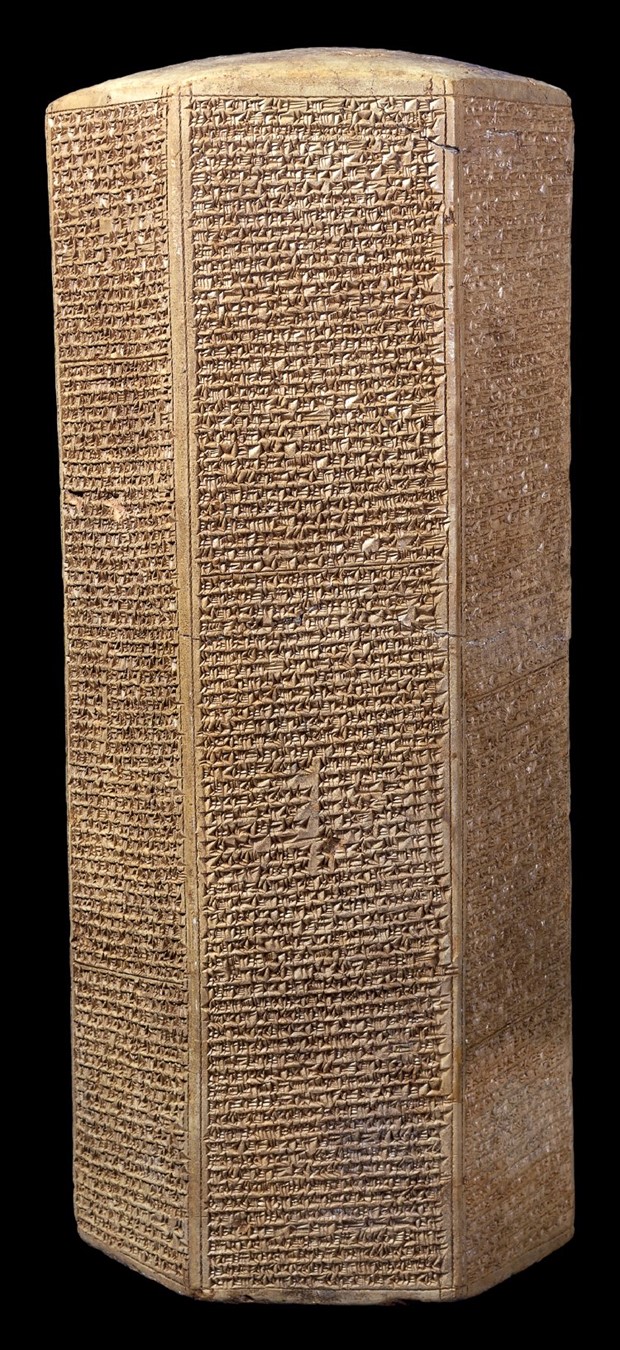The Importance of Prophets – Part 7

In our journey through this series, we have taken an interesting look at the basic importance of the biblical prophets and identified the ‘who’ and ‘what’ of both the major and minor prophets of the Bible. In Parts One and Two, we focused on the three ‘major’ prophets—Isaiah, Jeremiah, and Ezekiel—before turning our attention to the ‘minor’ prophets in Parts Three, Four, Five, and Six.
In this, Part Seven of the series, we will continue to examine the ‘minor’ prophets and the role they played in the Word…
‘Minor’ Prophets of the Old Testament:
As we discovered in Part One of this series, there are—according to some sources—two classifications of Old Testament prophets.
One classification being ‘major’ prophets: commonly consisting of three prophets—some sources include a fourth, Daniel—who have the largest prophetic texts and written oracles pertaining to future events, such as, the destruction and recreation of Israel, and the coming of Jesus, Messiah. These ‘major’ prophets include: Isaiah, examined in Part One, and Jeremiah and Ezekiel, examined in Part Two.
The second classification is ‘minor’ prophets: those who did not write extensive texts and oracles. These prophets include: Hosea, Joel, Amos, Obadiah, Jonah, Micah, Nahum, Habakkuk, Zephaniah, Haggai, Zechariah, and Malachi. In Parts Three, Four, Five, and Six we examined Hosea, Amos, Jonah, Joel, Obadiah, Micah, and Nahum.
Finally, while the majority of Old Testament prophets fall into these two categories, there are some, such as Elijah, Elisha, Samuel, Nathan, and occasionally Daniel, who are not categorized as either ‘major’ or ‘minor’ prophets despite their biblical and prophetic importance. These prophets we will simply categorize as ‘Old Testament Prophets.’
Habakkuk:
Habakkuk was a prophet during the reigns of as many as five kings of Judah at the time of the prophets Zephaniah, Jeremiah, Ezekiel, and possibly Nahum. However, despite being a prophet who prophesied during such turbulent times in the Kingdom of Judah, little is known about Habakkuk. His name is not found in any location outside of the book of Habakkuk, and even commonly found information, such as the name of his father or city of residence, are untold.
| Kings During the Time of Habakkuk and Zephaniah | ||
| Prophets | Kings | Years (B.C.) |
| Nahum?, Habakkuk, Zephaniah, Jeremiah, & Ezekiel | Josiah | 640-608
(reigned 31 years according to the Word) |
| Nahum?, Habakkuk, Zephaniah, Jeremiah, & Ezekiel | Jehoahaz | 608
(reigned 3 months) |
| Nahum?, Habakkuk, Zephaniah, Jeremiah, & Ezekiel | Jehoiakim | 608-597
(reigned 11 years) |
| Nahum?, Habakkuk, Zephaniah, Jeremiah, & Ezekiel | Jehoiachin | 597
(reigned 3 months & 10 days) |
| Nahum?, Habakkuk, Zephaniah, Jeremiah, & Ezekiel | Zedekiah | 597-586
(reigned 11 years until the captivity of Judah by the Babylonians in 586) |
Yet, in the book of Habakkuk he refers to himself as, ‘Habakkuk the prophet,’ which tells us that he likely worked as a professional prophet—either trained or simply called of God. However, while this seems the most likely option, there are some who believe he held a position in the Temple. This belief rises from the final chapter of Habakkuk, where Habakkuk notes at the end of Chapter 3, verse 19, “For the director of music. On my stringed instruments.” This notation, combined with the final chapter seemingly meant to be sung, convinces some that Habakkuk may have been a priest involved in the worship of God at the Temple—a priest obviously equipped with prophetic insights.
However, we do know that Habakkuk considered himself a prophet and that even the works of many prophets, holy men, and kings—such as David and Solomon—end or begin with a note for the director of music if the section was meant to be sung… therefore it is less likely that Habakkuk was a priest primarily involved in the worship of God and instead a prophet first and foremost—one with possible musical tendencies or connections to musicians in the palace and/or Temple.
So, we know about Habakkuk, but what about his words?
The book of Habakkuk is comprised of three chapters. Of these, the first two are interestingly a back and forth conversation between Habakkuk and God, with Habakkuk asking questions of Him and God answering—telling Habakkuk of the destruction to come and the reasons. Yet, the final chapter differs significantly from this conversational format. Instead, Habakkuk uses this time to pray in musical form—largely speaking of the feats, strength, and goodness of the Lord, as well as the trust Habakkuk places in Him despite everything.
In the first chapter, Habakkuk asks God why He does not act against the injustice occurring, and God answers with a promise…
“O Lord, how long shall I cry,
and You will not hear?…”—Habakkuk 1:2
God promises Habakkuk that injustice will not be long lasting, yet warns that Judah, like Israel before, would be punished for her harlotry—being made captive of those more evil than she.
“Look among the nations and watch—
be utterly astounded!
For I will work a work in your days
which you would not believe, though it were told you.
For indeed I am raising up the Chaldeans,
a bitter and hasty nation
which marches through the breadth of the earth,
to possess dwelling places that are not theirs.”—Habakkuk 1:5-6
Still, God’s answer did not mean that hope was lost. No, His answer merely showed that only those who held fast to Him would have hope through it all—being able to live by faith!
“Then the Lord answered me and said:
“‘Write the vision
and make it plain on tablets,
that he may run who reads it.
For the vision is yet for an appointed time;
but at the end it will speak, and it will not lie.
Though it tarries, wait for it;
because it will surely come,
it will not tarry.
“‘Behold the proud,
his soul is not upright in him;
but the just shall live by his faith.’”—Habakkuk 2:2-4
However, while God did give hope to those who trusted in Him, the destruction and seeming hopelessness of Judah’s situation would surely have put dread into many. In fact, Habakkuk himself was at first afraid! Only upon setting his sights on God did Habakkuk end not only with prayer, but with an acknowledgement that though everything may pass away, God was his hope AND strength!
“Though the fig tree may not blossom,
nor fruit be on the vines;
though the labor of the olive may fail,
and the fields yield no food;
though the flock may be cut off from the fold,
and there be no herd in the stalls—
yet I will rejoice in the Lord,
I will joy in the God of my salvation.
“The Lord God is my strength;
He will make my feet like deer’s feet,
and He will make me walk on my high hills…”
—Habakkuk 3:17-19
Zephaniah:
Zephaniah was a prophet during the reigns of as many as five kings of Judah at the time of the prophets Jeremiah, Ezekiel, possibly Nahum, and of course, Habakkuk. Unlike Habakkuk however, we know something of Zephaniah, though his life largely remains a mystery…
Zephaniah, according to Zeph. 1:1, was the son of Cushi, who was the son of Gedaliah, the son of Amariah, the son of Hezekiah. It is unknown if this Hezekiah was King Hezekiah, as the only offspring of Hezekiah mentioned in the Word is his successor, Manasseh. However, given that Zephaniah went that far back in his lineage and stopped at a Godly king’s name, it may suggest that it was King Hezekiah. Additionally, many biblical scholars believe it to be King Hezekiah, who likely had many sons. Either way, the opening of this prophetic word is made unique by this long lineage… allowing us a singular insight into Zephaniah.

(Royal seal (bulla) of King Hezekiah, bearing an inscription translating to: “Belonging to Hezekiah, (son of) Ahaz, King of Judah.”)
Despite beginning with a simple lineage, the book of Zephaniah quickly intensifies as God speaks of the coming destruction to the nations. From the ruining of Judah and Jerusalem who refused to repent, to the ruining of the Philistines, Assyrians, Cushites, and others.
From Zephaniah 1:2 to the end of chapter 2, God’s anger, the outcome, and the reasons for His anger are laid open, giving the people and land of Judah a frightening future—particularly when a respected prophet with possible royal lineage living amongst them states God’s words so plain.
“I will stretch out My hand against Judah,
and against all the inhabitants of Jerusalem.
I will cut off every trace of Baal from this place,
the names of the idolatrous priests with the pagan priests—
those who worship the host of heaven on the housetops;
those who worship and swear oaths by the Lord,
but who also swear by Milcom;
those who have turned back from following the Lord,
and have not sought the Lord, nor inquired of Him.”—Zephaniah 1:4-6
Indeed, in all of this, God’s words came to pass. Assyria’s Nineveh was destroyed in 612 B.C.; Judah fell to the hands of the Babylonians in 586 B.C.; and today, none of the nations that God was to completely destroy have survived. The Word of God comes to pass.
“And He will stretch out His hand against the north,
destroy Assyria,
and make Nineveh a desolation,
as dry as the wilderness.”—Zephaniah 2:13

(Source: British Museum. Sennacherib/Taylor Prism recounting Sennacherib supposedly having the King of Judah—Hezekiah—trapped like ‘a bird in a cage.’)
Yes, the times of destruction were fierce, but God is merciful. He speaks of the righteous, those who still do His will, and how even in the dreadful day of His judgement they would survive—the remnant even receiving the land of the Philistines where the Kerethites dwelt.
“Seek the Lord, all you meek of the earth,
who have upheld His justice.
Seek righteousness, seek humility.
It may be that you will be hidden
in the day of the Lord’s anger.”—Zephaniah 2:3
“The coast shall be for the remnant of the house of Judah;
they shall feed their flocks there;
in the houses of Ashkelon they shall lie down at evening.
For the Lord their God will intervene for them,
and return their captives.”—Zephaniah 2:7
Yet, further still, in the final chapter of Zephaniah, God brings hope. Hope specifically for Jerusalem. For God tells of the restored Jerusalem—His beautiful promise.
“In that day it shall be said to Jerusalem:
‘Do not fear;
Zion, let not your hands be weak.
The Lord your God in your midst,
the Mighty One, will save;
He will rejoice over you with gladness,
He will quiet you with His love,
He will rejoice over you with singing.’”—Zephaniah 3:16-17
Zephaniah was a prophet who had to, through his words, speak a harsh future to the people of Judah… yet, while the words were hard to proclaim, they came with a privilege. The privilege of bringing God’s hope, not only to the people of the land, but to himself…
The promise of a future.
“Therefore, since we have such hope, we use great boldness of speech.”—2 Corinthians 3:12
During the course of this series we will continue to look further into the lives of the prophets of the Word. We will see how the prophets of the Old Testament prophesied not only of what was about to occur—or would occur without action—but, how they laid out prophecies which not only came about during the days of Jesus, but are still coming to pass to this day!
Finally, we will examine New Testament prophets and how, from the book of Matthew to Revelation, what was and is to come, was revealed to us in part…
